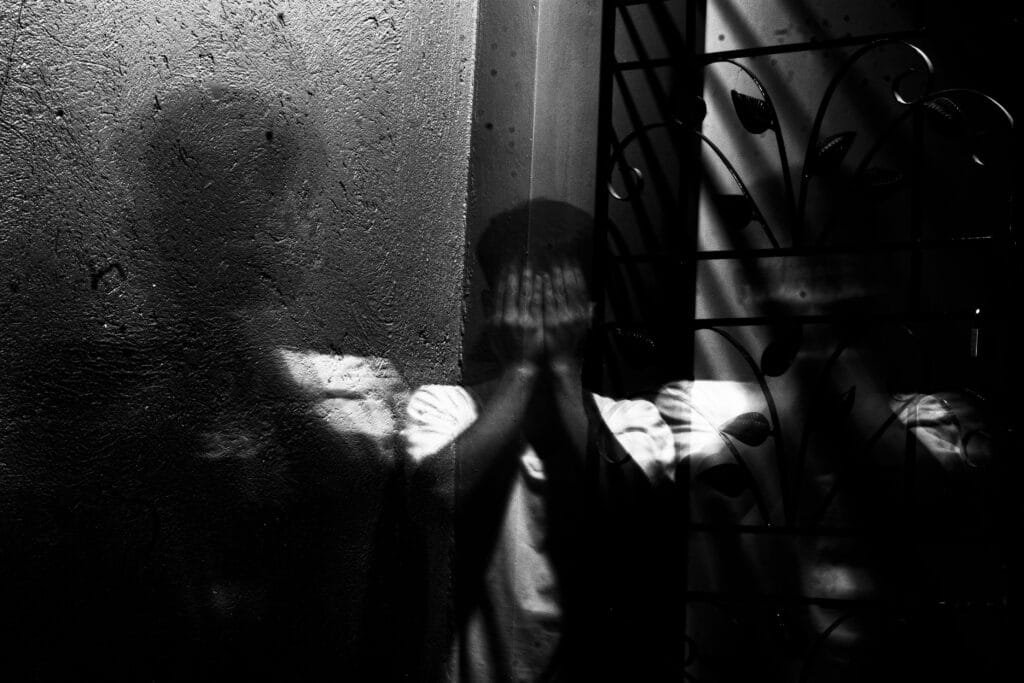Mental Health in Nigeria 2025 : Understanding Challenges, Services, and Policy
Mental health is an essential aspect of overall well-being, yet it remains a neglected issue in many parts of the world, including Nigeria. The stigma surrounding mental health, insufficient services, and inadequate funding contribute to the challenges faced by those seeking help. In Nigeria, mental health issues are on the rise, with an increasing number of children, adolescents, and adults affected by various conditions ranging from anxiety to depression. As the country progresses, there is a growing recognition of the need for comprehensive mental health services and policies that address the needs of the population.
Overview of Mental Health in Nigeria 2025

Mental health in Nigeria remains a significant challenge due to cultural stigmas, insufficient resources, and the lack of widespread awareness. Despite this, awareness is slowly increasing, and mental health is starting to gain attention at the governmental and societal levels. However, many Nigerians still face difficulties accessing the care they need.
Mental Health Statistics in Nigeria
Mental health statistics in Nigeria show that about 25-30% of the population suffers from mental health disorders. By 2025, it’s expected that these numbers will continue to rise without adequate interventions. Anxiety, depression, and substance abuse are among the most common conditions affecting Nigerians, with adolescents and young adults being particularly vulnerable.
Adolescent and Child Mental Health in Nigeria
Children and adolescents in Nigeria face significant mental health challenges due to issues such as trauma, poverty, and unstable home environments. Mental health services for younger populations are especially scarce, making early intervention difficult. Studies have shown that the mental health of Nigerian youth is closely tied to educational performance and overall life outcomes, emphasizing the need for more child-focused mental health initiatives.
Challenges Facing Mental Health in Nigeria
Stigma and Cultural Barriers
Mental health issues in Nigeria are often viewed as taboo subjects, with many people believing that mental illnesses are caused by spiritual or supernatural forces. This cultural stigma prevents many individuals from seeking the necessary treatment. Addressing these misconceptions is crucial for improving the mental health landscape in Nigeria.
Lack of Mental Health Services
There is a significant shortage of mental health services in Nigeria. With only a limited number of psychiatric hospitals and trained mental health professionals, many people who need care do not have access to it. This issue is particularly pronounced in rural areas, where medical facilities are few and far between.
Government Policies on Mental Health 2025
Mental Health Policy in Nigeria
Nigeria’s mental health policy, originally introduced in 1991, has undergone minimal updates until recently. Despite the policy’s existence, mental health care has long been neglected, with a significant gap between policy intentions and actual implementation. However, in January 2023, a significant step forward was made with the signing of the Mental Health Act, which replaced the outdated Lunacy Act of 1958. This new law focuses on the protection of people with mental health conditions, ensuring their rights and providing a framework for treatment within modern healthcare systems.
Mental Health in Nigeria: A Focus on 2025
By 2025, the Nigerian government aims to fully integrate mental health care into the primary healthcare system, making services more accessible across the country. This shift seeks to tackle mental health challenges on a national scale by emphasizing preventive care, early intervention, and reducing the stigma associated with mental illness. Efforts are also being made to increase mental health literacy among the general population, with a focus on underserved areas where mental health services are nearly non-existent.
Mental Health Services in Nigeria
Mental health services in Nigeria, though limited, are expanding due to increased awareness and support from various stakeholders. Government-run psychiatric hospitals, such as the Federal Neuro-Psychiatric Hospitals in cities like Lagos and Yaba, serve as major hubs for treatment, but the majority of the population, especially in rural areas, remains underserved. Non-governmental organizations (NGOs) like Mentally Aware Nigeria Initiative (MANI) and She Writes Woman are playing crucial roles by providing community-based mental health services and raising awareness about mental health issues across the country. Additionally, the private healthcare sector is contributing to this effort by offering mental health services to those who can afford it.
Access to Mental Health Care
Access to mental health care in Nigeria varies widely between urban and rural areas. In cities like Lagos, Abuja, and Port Harcourt, the availability of psychiatric hospitals and specialized clinics has improved, but the ratio of mental health professionals to patients remains low, with only 250 psychiatrists for a population of over 200 million people. In rural areas, mental health services are extremely limited, often nonexistent, forcing patients to travel long distances or rely on traditional healers for treatment. Telemedicine is emerging as a potential solution to bridge this gap, providing virtual consultations and support for those unable to access in-person care.
Future Outlook on Mental Health in Nigeria
The future of mental health in Nigeria holds promise but also presents significant challenges. The implementation of the Mental Health Act 2023 marks a new chapter in addressing the mental health crisis, but continued investment in infrastructure, healthcare personnel, and public education is crucial. Reducing stigma, especially in rural areas where mental illness is often viewed through a lens of superstition, will be key to improving outcomes. With sustained government commitment and the support of international organizations, Nigeria could achieve more comprehensive mental health coverage by 2025, focusing on both treatment and prevention.
How to Find Mental Health Services in Nigeria ?
If you or someone you know is dealing with mental health issues in Nigeria, it’s important to seek help. Start by contacting local healthcare providers or NGOs that specialize in mental health. Additionally, there are a growing number of online resources, including PDFs, that can guide individuals on how to find mental health support in Nigeria.

Key Facts About Mental Health in Nigeria
| Category | Statistics & Information |
|---|---|
| Mental Health Disorders | 25-30% of Nigerians suffer from mental illnesses |
| Adolescent Mental Health | High rates of depression and anxiety among teens |
| Access to Services | Limited access, especially in rural areas |
| Mental Health Professionals | Less than 0.5 psychiatrists per 100,000 people |
| Mental Health Policy | Updated policy expected by 2025 |
FAQ: Frequently Asked Questions
What are the main challenges facing mental health in Nigeria?
Mental health challenges in Nigeria include stigma, lack of awareness, inadequate services, and insufficient government support for mental health infrastructure
Is mental health care accessible in Nigeria?
Access to mental health care in Nigeria is limited, with only a few psychiatric hospitals and mental health professionals available, mostly in urban areas
What is the Nigerian government doing to improve mental health services?
The Nigerian government has been working on updating its mental health policies to integrate services into primary healthcare systems and improve access, particularly in underserved areas
How does mental health affect children and adolescents in Nigeria?
Mental health issues in children and adolescents are often related to trauma, poverty, and social pressures. These conditions can affect their academic performance and overall well-being
What is the mental health policy in Nigeria?
Nigeria’s mental health policy, initially introduced in the 1990s, is being revised to expand access to mental health services and reduce the stigma surrounding mental illness

Conclusion
Mental health in Nigeria remains a significant challenge, but with increased awareness, government policy reforms, and the growth of mental health services, there is hope for improvement. Addressing the stigma surrounding mental illness, increasing access to care, and ensuring that policies are enforced will be key to achieving better mental health outcomes in Nigeria by 2025.
More articles in 2025
“Jumia Black Friday 2024: Huge Deals, Shop Stress-Free!”
“EFCC Seizes Warehouse & 54 Containers in Landmark Case”
“Bullet-Proof Charms Gone Wrong: Shocking Nigerian Myths”
“2024 Africa Leadership Awards: Meet the Game-Changers”
500% Promo with Bonus 1Win Nigeria
500% Promo with ‘SOKOFREE’ Bonus 1Win Nigeria Discover 1Win Nigeria’s offers and discounts in 30th August 2025 : Get 50% Antivirus in Nigeria Finding the…
5 Strategies to Maximize Your Savings When Shopping In-Store
5 Strategies to Maximize Your Savings When Shopping In-Store In a world increasingly focused on…
Top Destinations for Nigerian Students: Study Abroad on a Budget in 2025!
Top Destinations for Nigerian Students: Study Abroad on a Budget in 2025! Dreaming of studying…
